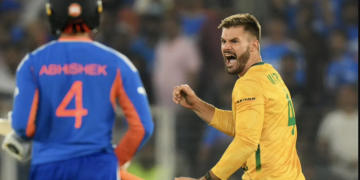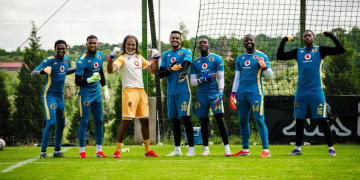
In 1995, just one year after Nelson Mandela was elected president of South Africa and three years after the official end of apartheid, South Africa was preparing to host the Rugby World Cup.
The country was coming out of a challenging period: the racist legislative system imposed by the white minority had lasted for 42 years, leaving behind highly high social tensions and, at best, nonexistent – at worst, bad and violent – relations between whites and blacks.
Eighty percent of the population was black, while rugby, brought to South Africa from the Netherlands and Germany in the late 19th century, was generally considered a sport for whites. Consequently, it was played almost only by so-called Afrikaners, and the perception was shared and reinforced by the fact that during matches, the (white) public often displayed banners with racist phrases or chants against black players. Hence, the reason why the vast majority of South Africans cheered against the national rugby team, and even Mandela recounted doing the same when he was young.
The way that Mandela turned a potentially very risky and controversial event-hosting the World Cup of a “white” sport in a country just emerging from racial segregation-remains a great story. It is also evidenced by the many love demonstrations from the rugby world at the news of his death.
The story was told in a book by John Carlin called Love Your Enemy, which was transposed in 2009 into Clint Eastwood’s film Invictus, starring Morgan Freeman as Mandela.

The 95′ Rugby World Cup
In South Africa, from the 95′ Rugby World Cup on, everyone began to follow rugby at the same levels as people follow soccer in Europe.
Mandela became convinced that hosting them in South Africa was an excellent opportunity to find a common element of unity for such a divided population. So, two months after being elected, in June 1994, Mandela met with the captain of the national rugby team Francois Pienaar-white 25 out of 26 players and explained what was on his mind: to take advantage of the World Cup to unite the country.
Pienaar recounts that during the South African national team’s training camp, Mandela was constantly phoning them, asking, “Are the boys focused? Are they okay? Are they relaxed?” One day he paid a surprise visit to the team: he arrived by helicopter, greeted them, and said, “You have an opportunity to do a great thing for South Africa and to unite people. Remember that all of us, black or white, are with you.”
The World Cup began, and South Africa won game after game: in the opening match, it beat Australia, one of the strongest teams in the tournament, 27-18.
On June 24, 1995, the day of the final, Mandela wore Pienaar’s shirt, the one with the number 6, and visited the team in the locker room.
At the end of the game, South Africa became rugby world champions.
Mandela handed the trophy to Pienaar and told him, “Thank you for everything you have done for our country.” Pienaar replied, “No, Mr. President, thank you for what you have done for this country.”
How has Mandela affected the South Africa of today?
Since Mandela intervened in the country’s development, things have improved so much that today South Africans living abroad are so attached to their country that they still want to watch the broadcast channels of the South African Broadcasting Corporation (SABC), e.tv, or Soweto TV.
Also, South Africans that still live in the country enjoy a reasonably accessible and “open” network with little censorship. They can watch international movies, use social networks, bet online on rugby matches or any other type of sport, and play at the best online casinos in the UK, USA, and many other countries.
They can access Instagram or Facebook, play for real money at countless online games quickly and safely, and receive welcome bonuses and other benefits available to them as much as to Europeans or Americans.
Of course, they only requirement is that players must be over 18 years old to gamble or bet, including free slots.
Conclusion
Today Mandela is gone, but we cannot say that he did not contribute to the many freedoms granted to South African citizens today.
When a man cares about the future of his country, he will do everything to make the lives of his citizens easier and make his nation great.









